#paul motian
Text
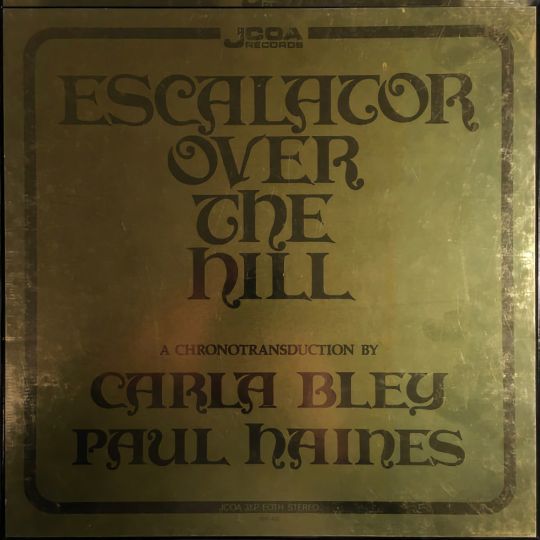
Alto Saxophone – Jimmy Lyons
Baritone Saxophone – Chris Woods
Bass – Charlie Haden
Bass Trombone – Jack Jeffers
Clarinet – Perry Robinson
Drums – Paul Motian
Electric Guitar – John McLaughlin
French Horn – Sharon Freeman
Piano – Carla Bley
Tenor Saxophone – Gato Barbieri
Trombone – Roswell Rudd
Trumpet – Michael Mantler
Tuba – John Buckingham
Voice – Linda Ronstadt
Voice – Charlie Haden
#carla bley#paul haines#escalator over the hill#linda ronstadt#charlie haden#michael mantler#roswell rudd#gato barbieri#john mclaughlin#paul motian#jimmy lyons
25 notes
·
View notes
Text

Keith Jarrett, Charlie Haden, Paul Motian and Dewey Redman.
At the backstage of Kosei Nenkin Hall, Tokyo, 1974.
Photo by Yuzo Satoh.
#keith jarrett#charlie haden#dewey redman#paul motian#jazz#keith jarrett quartet#keith jarrett american quartet#1974#tokyo#japan#yuzo satoh
31 notes
·
View notes
Text
Derek Bailey / Paul Motian — Duo in Concert (frozen reeds)
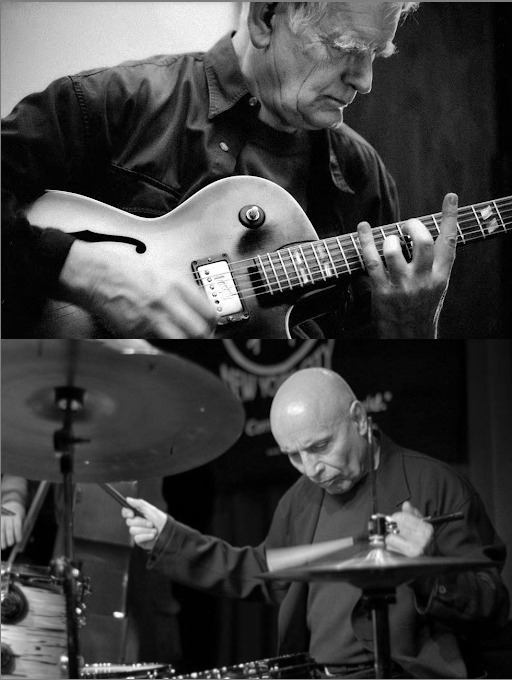
Specializing in archival recordings, the Helsinki frozen reeds label has come up with another doozy. This time unearthing in the Incus archives previously unreleased concert recordings of guitarist Derek Bailey and drummer Paul Motian for the release "Duo in Concert." Released at the tail-end of 2023, the LP version captures the duo live at the 1990 Jazz Marathon at De Oosterpoort festival in the city of Groningen, the Netherlands. As bonus digital tracks, the label offers recordings made at the New Music Cafe in New York City in 1991. A conversation between Bill Frisell and Henry Kaiser discussing these recordings and their collective experiences playing with Bailey and Motian is included as liner notes.
It's hard to approach a recording from two of my all-time favorite artists with any sense of objectivity, not to mention a heavy dose of expectation. And with a pairing that — at least on paper — doesn't immediately make outright sense, a certain degree of trepidation preempts the initial listening process as well. Accounts of both Bailey and Motian's contrariness and adversarial approach to performing are legion. Having seen both musicians live, I always had the feeling that everything could go off the rails at any moment. There was a certain sense of peril and uncertainty that pervaded their music — and not only because what they were doing was risky but more because they didn't seem to adhere to any rules of musical decorum.
When I first saw Bailey play solo in the mid-1980s, he broke off his set mid-concert to start sharing what seemed like random anecdotes with the audience, then picked right back up and started to play all over again. He stopped abruptly once more a bit later to tune his guitar (actually not much unlike what goes on in Indian classical music). It was almost as if he didn't see the point of himself being there. What he played — when he actually played — was undeniably brilliant. But his attitude came across as ambivalent and irascible, to say the least.
Similarly when I caught Motian in the early 1990s with his trio of Bill Frisell and Joe Lovano, he seemed to revel in the act of eloquent disruption, of not letting things ride but of seeking to derail and create situations where the music took sudden turns down unknown roads. Motian soloed like a kid discovering the drums for the first time, alternately bashing the toms or dropping bombs of bass drum cymbal crashes, then suddenly shifting to exquisite brush work on the snare, echoing his time with Bill Evans.
So, what was I to think of this improbable pairing? Obviously, from the start I was rooting for them. These guys were my heroes. But heroes also fall. I'm happy to say that over repeated listens "Duo in Concert" did not disappoint for one second of these recordings. It would be interesting to know if this concert in Groningen was their first meeting, or if they'd had the chance to play together in a more informal setting beforehand, because the 35-minute set sounds so fresh and invigorating. As if they had met for the first time, discovering their shared language and limitations in real-time before a festival audience. Adding to this the music also comes across as very intimate, as if Motian and Bailey had already played many years together and were picking up on a conversation they'd been having the last time they met. Consequently, both players sound not only completely engaged with the music, but actually excited by what they're coming up with. Practically as though they found themselves in a perpetual state of surprise and delight for the entire length of the concert. "Duo in Concert" is truly an inspiring listen.
There is much to expect that actually transpires: Bailey's spikey, chromatic fields played in jagged rhythmic runs across an incredibly wide dynamic range, spanning the spectrum from ringing harmonics on the verge of feedback to barely caressing the strings with his pick. And then there's Motian's incredible brush work paired with bombastic tom fills and tremorous bass drum drops. The real mystery is how this all manages to coalesce into — for lack of a more apt expression — an undeniable example of sheer poetry in sound. The mutual respect and inspiration between Motian and Bailey so evident in these recordings is in itself one of the most compelling aspects of this release.
A major unifier here would have to be Bailey and Motian's shared backgrounds in jazz. Bailey used to refer to himself in his earlier musical incarnation as previously sounding something like Jim Hall. But of course by the mid-1960s had realized he would, as Henry Kaiser states in the liner notes, have to depart for Planet Improv and leave the world of jazz behind. By this point in his long career Motian still had certainly more invested in the jazz tradition but seemed not to worry about what this meant. He'd long since moved on beyond what the rule keepers of the jazz world had imposed. Yet Motian also never went totally free like Bailey. And in fact, this would be the first record I'd heard where Motian plays from scratch, without any vague road map or composition to steer the musical proceedings.
But it is precisely this jazz background which lends an unmistakable narrative thread to the concert at Groningen. Bailey and Motian's collaboration is truly like a conversation in the most literal sense of the word. And like the greatest musical conversations in the context of jazz music, both players join together for this one brief point in time to tell a story together, listening and building their musical ideas from their dialogue. As hackneyed as this may sound, the end effect is a perfect example of instant composing, of creating a totally cohesive, rigorously structured piece of music from thin air.
And this encompasses signifiers of a more narrative approach along the way: towards the midpoint of the set, Bailey fades out to let Motian take the practically obligatory drum solo, a roiling, thunderous affair across the toms and cymbals. This is followed by Bailey jumping back in with what in a more conventional jazz piece, could be the main soloist picking up again with another long passage. Along the way Bailey engages in some of the most impressionistic and nearly melodic playing I've ever heard from him, even approaching what one could construe as comping rapid chord variations to Motian's hard-driving pulse. The set ends with Motian playing a very grooving swing pattern on the high hat that not only absolutely works with Bailey's field of dissonant harmonic notes but is in itself a stroke of genius, melding the two worlds of jazz and obdurate free improvisation with a gesture of contrast and a nod to the history both of these musicians had left far behind but by no means forgotten.
For fans of Derek Bailey and Paul Motian "Duo in Concert" is an absolute must listen. For those unfamiliar with either of these artists' work, this release would be a great place to start, not only because it captures them both at the height of their powers but is also a convincing and highly moving documentation of free improvised music that shouldn't be missed.
Jason Kahn
#derek bailey#paul motian#duo in concert#frozen reeds#jason kahn#albumreview#dusted magazine#jazz#Jazz Marathon at De Oosterpoort#live#free improvisation
10 notes
·
View notes
Text

Minority
Night and Day
Autumn Leaves
Peri’s Scope
Peace Piece
Milestones
Tenderly
Blue in Green (Take 1)
Suicide Is Painless (Theme From M*A*S*H)
When I Fall In Love
Someday My Prince Will Come
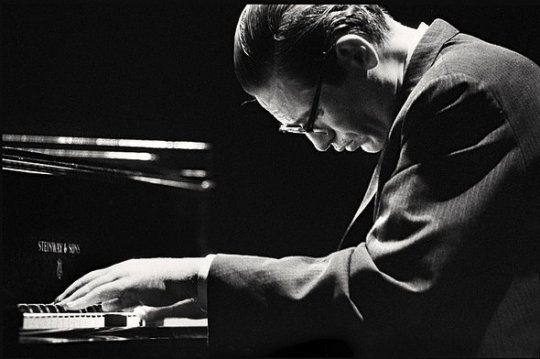


Psychoactivelectricity’s Jukebox Guide
The Mini Jukebox Page
Click -> HERE <- for an updated Mini Juke Guide
16 notes
·
View notes
Text
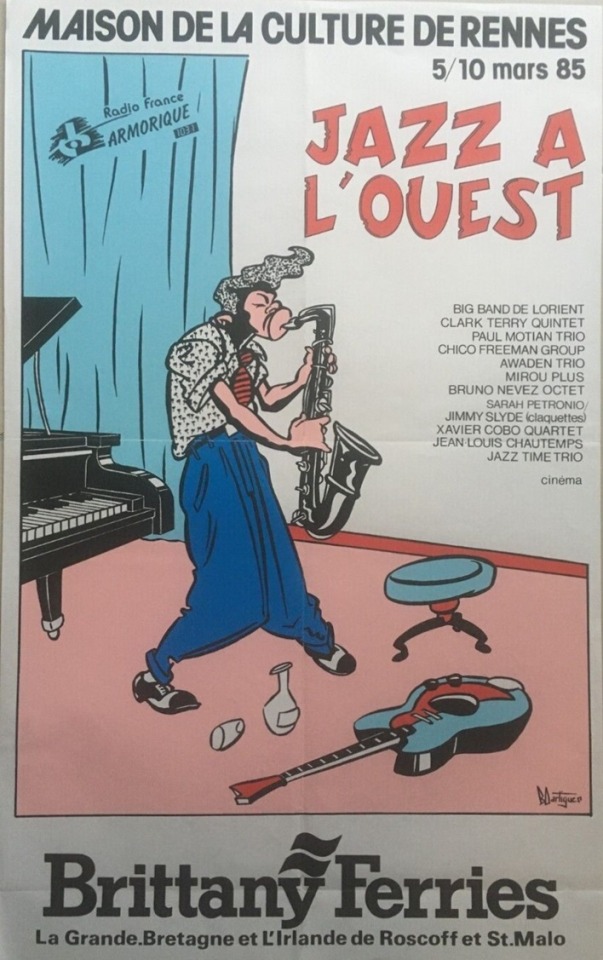
1985 - Jazz à l'Ouest - Maison de la Culture de Rennes
Big Band de Lorient
Clark Terry Quintet
Paul Motian Trio
Chico Freeman Group
Jimmy Slyde
Xavier Cobo Quartet
Jean-Louis Chautemps
...
#jazz#poster flyer#clark terry#paul motian#chico freeman#jimmy slyde#xavier cobo#jean louis chautemps#1985
11 notes
·
View notes
Text
Bill Frisell: Master of Eclectic Guitar
Introduction:
Bill Frisell is a name synonymous with innovation and versatility in the world of jazz and contemporary music. With a career spanning over four decades, Frisell has consistently pushed the boundaries of guitar playing, blending a wide array of genres and styles into his unique sound. From jazz and blues to country and folk, Frisell’s music defies categorization, earning him a…

View On WordPress
#Bill Frisell#Charlie Haden#Elvin Jones#Finding Forrester#Have a Little Faith#It Should&039;ve Happened a Long Time Ago#Jazz Guitarists#Jazz History#John Zorn#Paul Motian#Psalm#This Land#Wes Montgomery
4 notes
·
View notes
Text

"Keith Jarrett" (1976, Impulse) is a Japan-only "best of" compilation LP from the esteemed pianist. Included is the 1973 track "Fort Yawuh". w/ my father, Dewey Redman, Paul Motian, Danny Johnson.
4 notes
·
View notes
Photo
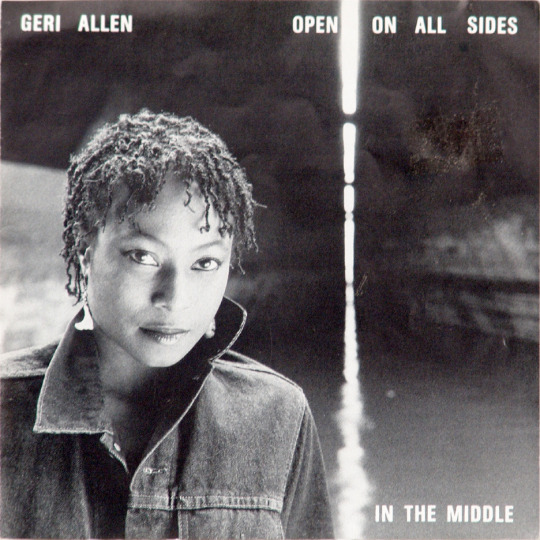
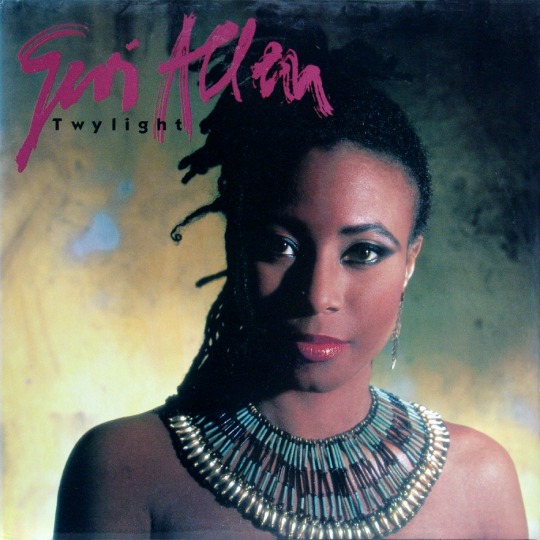
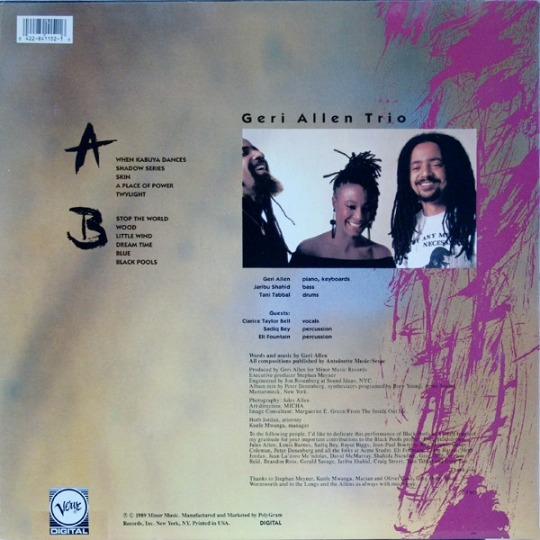

Geri Allen
14 notes
·
View notes
Text
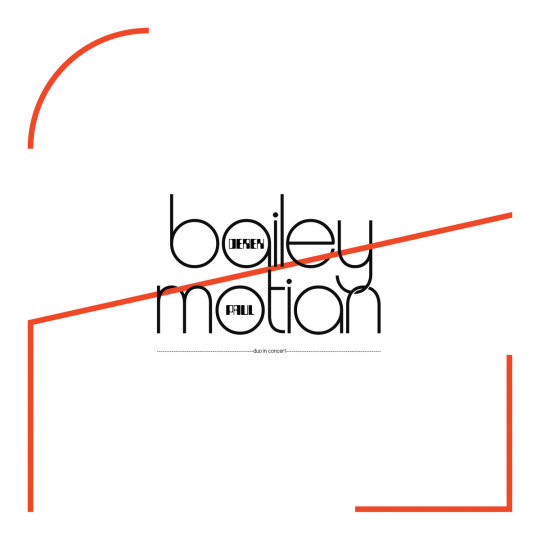
Derek Bailey & Paul Motian - Duo In Concert
Let's kick off 2024 ... in 1990? Yeah, it feels like the right thing to do. Coming to us via the estimable Frozen Reeds label, Duo In Concert captures a rare live show from two titans — avant-improv guitarist Derek Bailey and legendary jazz drummer Paul Motian. "It's so hard to talk about, because it's so beautiful," says Bill Frisell. "It's like you're seeing some new species of plant that you never knew existed or something." And as usual, Bill is right! This is special stuff, a free-flowing musical conversation that provides more questions than answers ultimately — but those questions linger in your mind long after the last notes ring out. Both Bailey and Motian have passed on to some other plane of existence, but here they're as vivid and thrilling as ever.
6 notes
·
View notes
Video
youtube
Lonely Woman
Geri Allen, Charlie Haden, Paul Motian
23 notes
·
View notes
Text
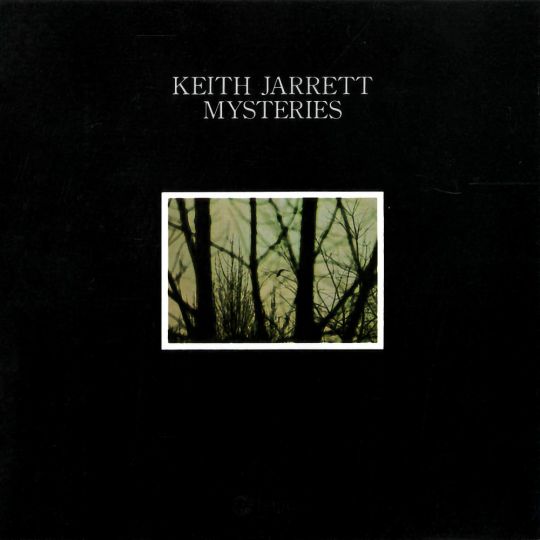
#keith jarrett#mysteries#everything that lives laments#dewey redman#charlie haden#guilherme franco#paul motian
6 notes
·
View notes
Text
youtube
I know it's only been a week, but I'm bringing Charlie Haden back, this time has part of the Keith Jarrett Trio with Paul Motian. Some people don't love this because if you listen to enough Jarrett, there's typically a lot more rhythmic angularity and harmonic complexity. This really is just a bluesy folk song--Somewhere Before is right after Restoration Ruin--and I feel like you can hear him working out what he wants to do with what was then the new popular music.
I love Motian on this. It's just propulsive enough and then he pushes things for three minutes and then elegantly gives Haden a little more room for his solo and gradually brings things around again.
Bob Dylan, too, for writing a hell of a song.
#my back pages#keith jarrett trio#keith jarrett#charlie haden#paul motian#somewhere before#bob dylan#our daily jam#Youtube
6 notes
·
View notes
Text
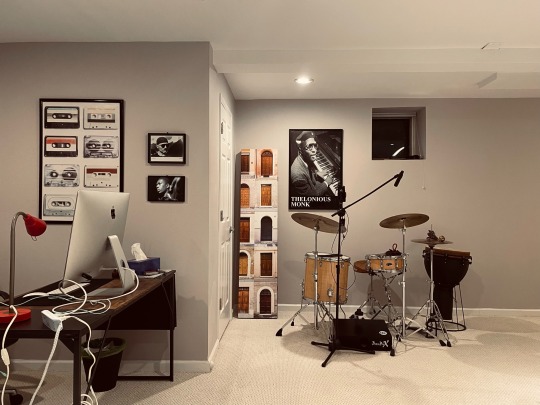
The studio is finally coming together.
#drrummer#percussion#jazz#drumset#studio#stagg cymbals#jazz drummer#thelonious monk#paul motian#john coltrane#cassette#imac
3 notes
·
View notes
Photo
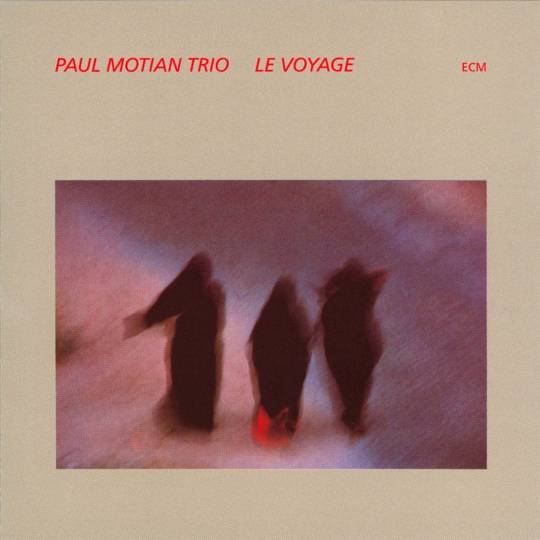
AllMusic Staff Pick
Paul Motian Trio
Le Voyage
Paul Motian's second late-'70s trio excursion with Charles Brackeen on saxophones substitutes Jean-François Jenny Clark for David Izenson on bass with no drop-off in quality, but definitely one in mood. Tadayuka Naitoh's cover photo -- three blurry figures in black against an amorphous color backdrop (could be bundled-up women waiting at a crossroads) -- is a pretty good visual representation of the introspective, abstract flavor of Le Voyage.
- Don Snowden
3 notes
·
View notes
Photo

Bill Evans Trio – How My Heart Sings!
1964 : Riverside.
[ support the artist ★ buy me a coffee ]
#jazz#post bop#modal jazz#bill evans#1964#riverside#chuck israels#paul motian#1960s#1960s jazz#piano trio
12 notes
·
View notes